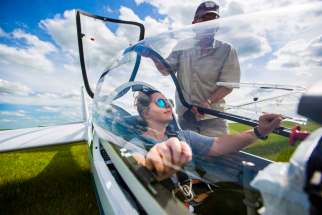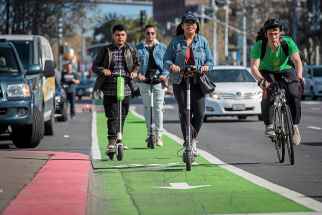E-scooters face harsh realities in cold-climate cities
Read this article for free:
or
Already have an account? Log in here »
To continue reading, please subscribe:
Monthly Digital Subscription
$0 for the first 4 weeks*
- Enjoy unlimited reading on winnipegfreepress.com
- Read the E-Edition, our digital replica newspaper
- Access News Break, our award-winning app
- Play interactive puzzles
*No charge for 4 weeks then price increases to the regular rate of $19.00 plus GST every four weeks. Offer available to new and qualified returning subscribers only. Cancel any time.
Monthly Digital Subscription
$4.75/week*
- Enjoy unlimited reading on winnipegfreepress.com
- Read the E-Edition, our digital replica newspaper
- Access News Break, our award-winning app
- Play interactive puzzles
*Billed as $19 plus GST every four weeks. Cancel any time.
To continue reading, please subscribe:
Add Free Press access to your Brandon Sun subscription for only an additional
$1 for the first 4 weeks*
*Your next subscription payment will increase by $1.00 and you will be charged $16.99 plus GST for four weeks. After four weeks, your payment will increase to $23.99 plus GST every four weeks.
Read unlimited articles for free today:
or
Already have an account? Log in here »
Hey there, time traveller!
This article was published 08/07/2019 (2346 days ago), so information in it may no longer be current.
In proverbial terms, the early bird has always been noteworthy for what it’s able to catch.
In local transportation terms these days, there’s a California-based Bird hoping what it will catch with its early rise into Western Canada is the lion’s share of the e-scooter market in this country.
Bird, a company that competes in several U.S. cities for ridership in the relatively new but fast-growing business of for-hire motorized scooters, has opened a Canadian subsidiary with the intention of introducing its e-scooters in Calgary and Edmonton and, the company’s CEO said last week, perhaps eventually Winnipeg.
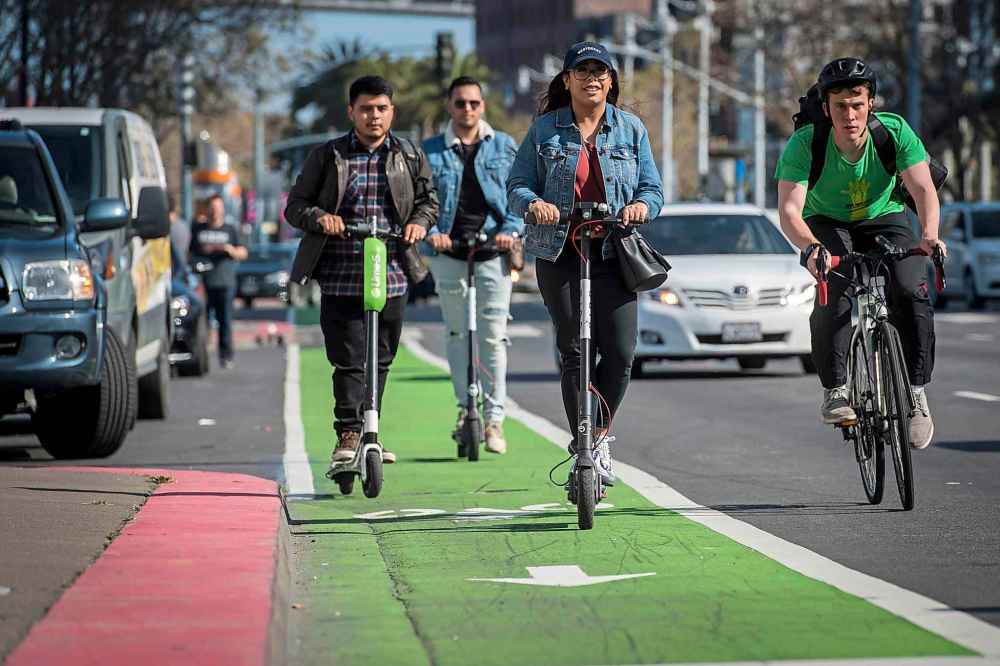
Bird Canada CEO Stewart Lyons said the company opted to target its first Canadian launch to Alberta’s largest cities because it expects to be granted the necessary exceptions to provincial regulations governing the types of motorized vehicles allowed on public roads. He cited Kelowna, B.C., as the next likely locale for Bird-scooter introduction, and suggested Saskatoon and Charlottetown have also expressed interest in having the two-wheeled conveyances on their streets.
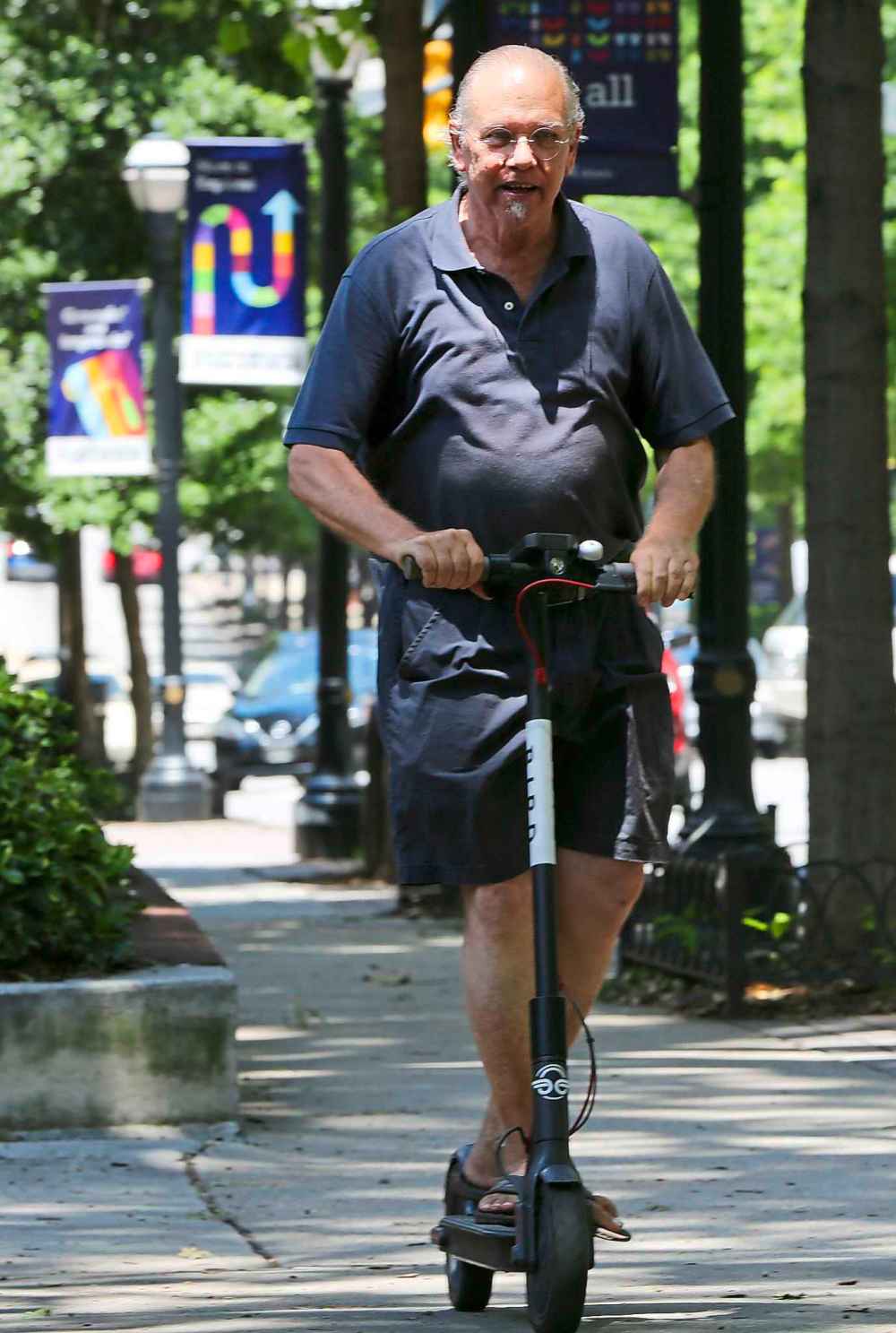
The company “would love to come to Winnipeg,” Mr. Lyons added, but one can’t help wondering how thoroughly he and other Bird executives have thought through the company’s northern-climes aspirations.
Simply put, Canada — and in particular, Prairie cities known for their long, harsh winters — might be difficult places in which to apply the business strategy that has allowed Bird to become instantly popular in more temperate U.S. locales.
The e-scooter craze took hold last year, seemingly out of thin air, when a number of California companies — including Bird, Lime, Skip and Spin — quickly and with virtually no advance notice distributed tens of thousands of electric scooters in major centres across the U.S. and around the world.
The driving concept is simple: riders download a smartphone app, input credit-card information and then use the app to unlock an e-scooter for pay-as-you-ride use.

Mr. Lyons said Bird’s vehicles in Canada would be available at a cost of $1.15 to unlock and 35 cents per subsequent minute of use. The scooters are capable of speeds approaching 25 km/h, which could make them an attractive alternative to public transport.
The problem in Canada is that under existing highway-traffic laws, there’s really nowhere that these motorized two-wheeled vehicles can operate. They lack the necessary safety equipment to be allowed on the streets, and because they’re motorized, they can’t be driven on sidewalks — hence the need for the aforementioned Alberta exception.
In Winnipeg, of course, the notion of two-wheeled transportation comes with its own uniquely local set of issues. Even if regulatory exceptions for road access and safety equipment were provided, Bird’s summertime scooter-riders would find themselves swerving and rattling along city streets whose uneven surfaces have long been the bane of bicycle owners.
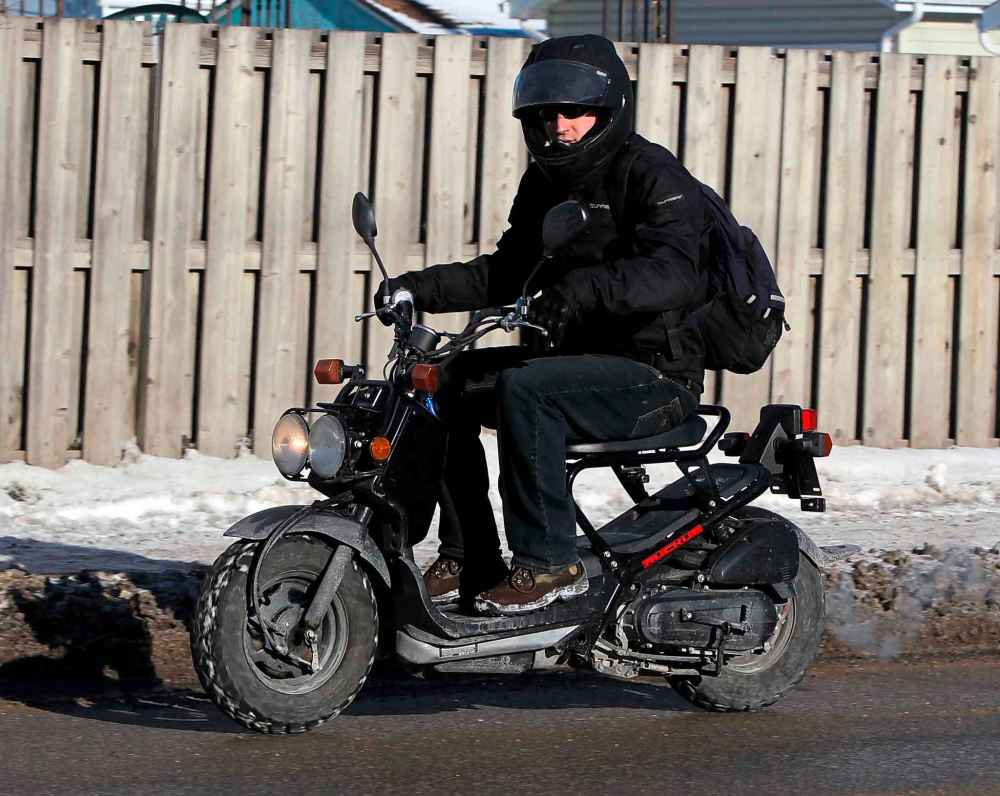
It’s probable the public’s interest in for-hire scooter fun will fall off precipitously when the temperatures drop into the deep minuses and the snowbank-narrowed streets are covered with ice. So even if the municipal logistics could be ironed out, the meteorological inevitabilities cannot be denied.
Earlier this year, Coun. Matt Allard suggested Winnipeg should ready itself for the inevitable arrival of the e-scooter craze. “They’re coming,” he said, “so let’s get it right.”
One can’t help thinking, given the infrastructural, legislative and climatological realities that exist here, that the councillor and the CEO may have spoken too soon. The only thing this early Bird is guaranteed to catch is a cold.







